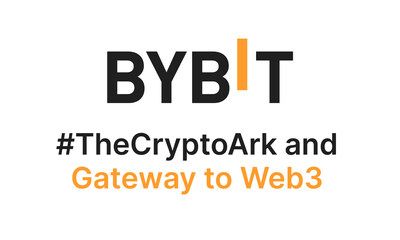The New Bybit Web3 is Here–Fueling On-Chain Thrills with $200,000 Up for Grabs
DUBAI, UAE, Aug. 8, 2025 /PRNewswire/ — Bybit, the world’s second-largest cryptocurrency exchange by trading volume, has announced another chapter in Web3 infrastructure with the brand new Bybit Web3.
Returning from the hiatus in May this year when the restructuring commenced, Bybit Web3 is back and better on a mission to unlock access for millions of users worldwide. The new edition reimagines the on-chain experience with innovative offerings and a seamless user journey.
Barrier-Free Onchain Experience
The strategic upgrade adopts a fresh approach to on-chain trading integrating core DeFi functionalities and benefits into Bybit’s trading platform, removing the hassle of setting up and managing multiple Web3 wallets and gas tokens.
Achieving on-chain trading without complex setup and management of on-chain wallets and gas tokens, Bybit Web3 distills DeFi opportunities into one user-friendly interface. No external wallets, no gas tokens required—with only their Bybit UTA (Unified Trading Account) using USDT, USDC, SOL or bbSOL, users can explore on-chain trading and DeFi activities on Bybit Web3.
Bybit users can seamlessly navigate between the centralized exchange and Web3, directly trading the most sought-after on-chain assets include TUNA, PUMP, FRAG, Fartcoin, JLP, RAY, MOODENG, LetsBONK, TSLAx, MSTRx, SPYx, CRCLx and NVDAx on the Solana network.
Bybit Web3 Exclusive: Limited-Time Prize Pool
From now until September 7, 2025, eligible Bybit Web3 users can unlock a new prize pool of 200,000 USDT in two events:
- Task-Based Rewards: successful participants will earn Lucky Draw Tickets to unlock a 120,000 USDT prize pool; simple tasks include making the first Web3 trade in any amount.
- Performance-Based Competition: more confident Web3 traders can compete for top spots in the leaderboards by volume, for a chance to win up to 80,000 USDT.
Rewards are distributed on a first come, first served basis. Terms and conditions apply.
Bybit Web3 fuses the potential of Web3 and the convenience of the centralized experience, offering users the flexibility and support in an innovative model. With more features such as on-chain and off-chain arbitrage opportunities on the roadmap, getting ahead on-chain has never been easier.
#Bybit / #TheCryptoArk / #BybitWeb3
Bybit is the world’s second-largest cryptocurrency exchange by trading volume, serving a global community of over 70 million users. Founded in 2018, Bybit is redefining openness in the decentralized world by creating a simpler, open and equal ecosystem for everyone. With a strong focus on Web3, Bybit partners strategically with leading blockchain protocols to provide robust infrastructure and drive on-chain innovation. Renowned for its secure custody, diverse marketplaces, intuitive user experience, and advanced blockchain tools, Bybit bridges the gap between TradFi and DeFi, empowering builders, creators, and enthusiasts to unlock the full potential of Web3. Discover the future of decentralized finance at Bybit.com.
For more details about Bybit, please visit Bybit Press
For media inquiries, please contact: media@bybit.com
For updates, please follow: Bybit’s Communities and Social Media
Discord | Facebook | Instagram | LinkedIn | Reddit | Telegram | TikTok | X | Youtube
![]() View original content to download multimedia:https://www.prnewswire.com/news-releases/the-new-bybit-web3-is-herefueling-on-chain-thrills-with-200-000-up-for-grabs-302525189.html
View original content to download multimedia:https://www.prnewswire.com/news-releases/the-new-bybit-web3-is-herefueling-on-chain-thrills-with-200-000-up-for-grabs-302525189.html
SOURCE Bybit

Featured Image: depositphotos @ PromesaStudio




